Ajax Amsterdam were in need of a win by at least two goals against current champions Real Madrid to make it into the Champions League quarter finals after their 2-1 defeat in the first leg game at home. To the surprise of many, Ajax were capable of putting this into action by beating Real 4-1 in the Bernabéu.
Erik ten Hag’s side utilised a high pressure style of football to overcome Real in an action-packed match. The interesting role of Donny van de Beek was another vital aspect of the concept of Ajax which will be depicted in the following tactical analysis.
Lineups
Ajax opted to defend in a 4-2-3-1 formation. While Frankie de Jong and Lasse Schöne formed a double pivot in central midfield, Van de Beek played in a more advanced role as the central attacking midfielder.
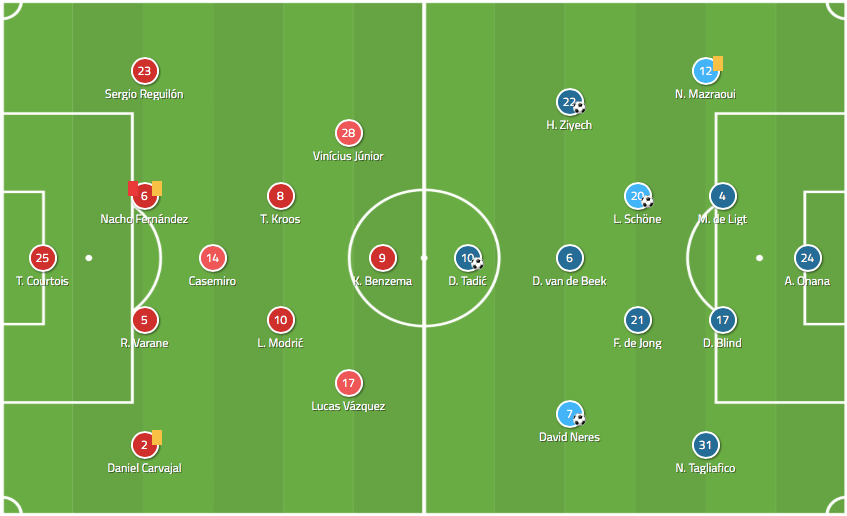
Striker Dusan Tadic and wingers Hakim Ziyech as well as David Neres were supposed to threaten Real Madrid’s goal. Last but not least, Erik ten Hag set up a line of four at the back to defend Real’s attacking trio.
Van de Beek: the unremarkable key player
Striker Tadic put in a world class performance. However, the role of Van de Beek was vital for the freedom Tadic enjoyed during the attacking phase. Whenever Tadic dropped into midfield, Van de Beek would take over his position and thus drag away Madrid’s centre-backs.
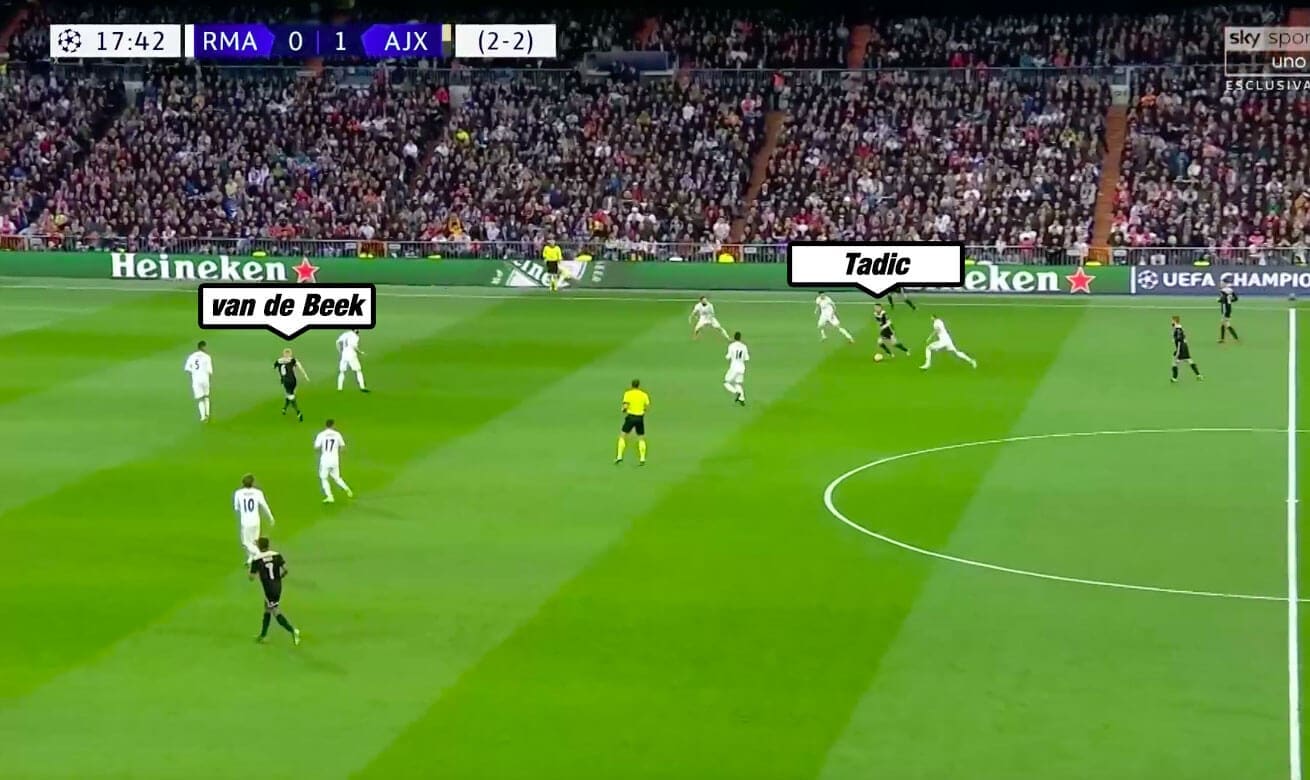
Moreover, the Dutch midfielder opened up the gap for wide forward Neres to burst into before Ajax scored their second goal of the game.
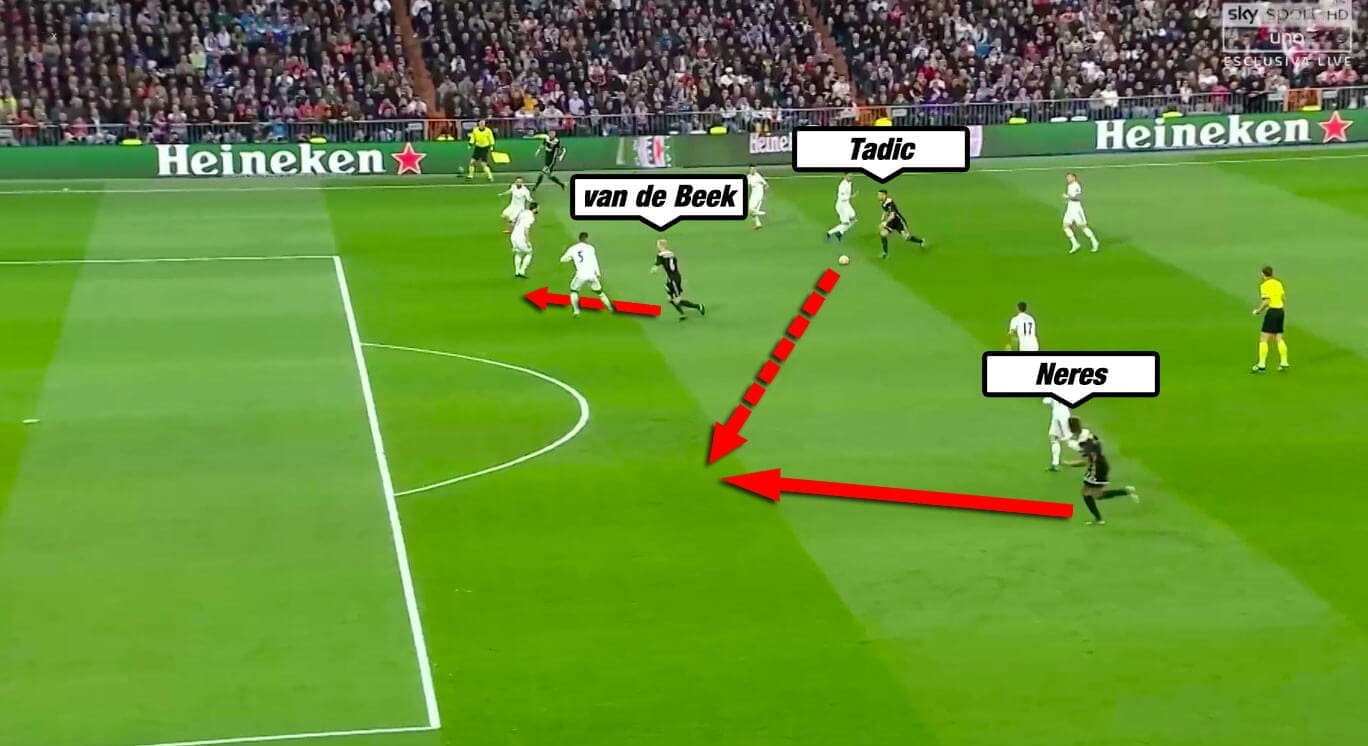
Without touching the ball in this situation, Van de Beek enabled his teammates to penetrate Real’s defence. Furthermore, the Dutch youngster liked to drift towards the wing. As this often dragged one of Real’s central defenders out of position, gaps opened up within Madrid’s last line of defence.
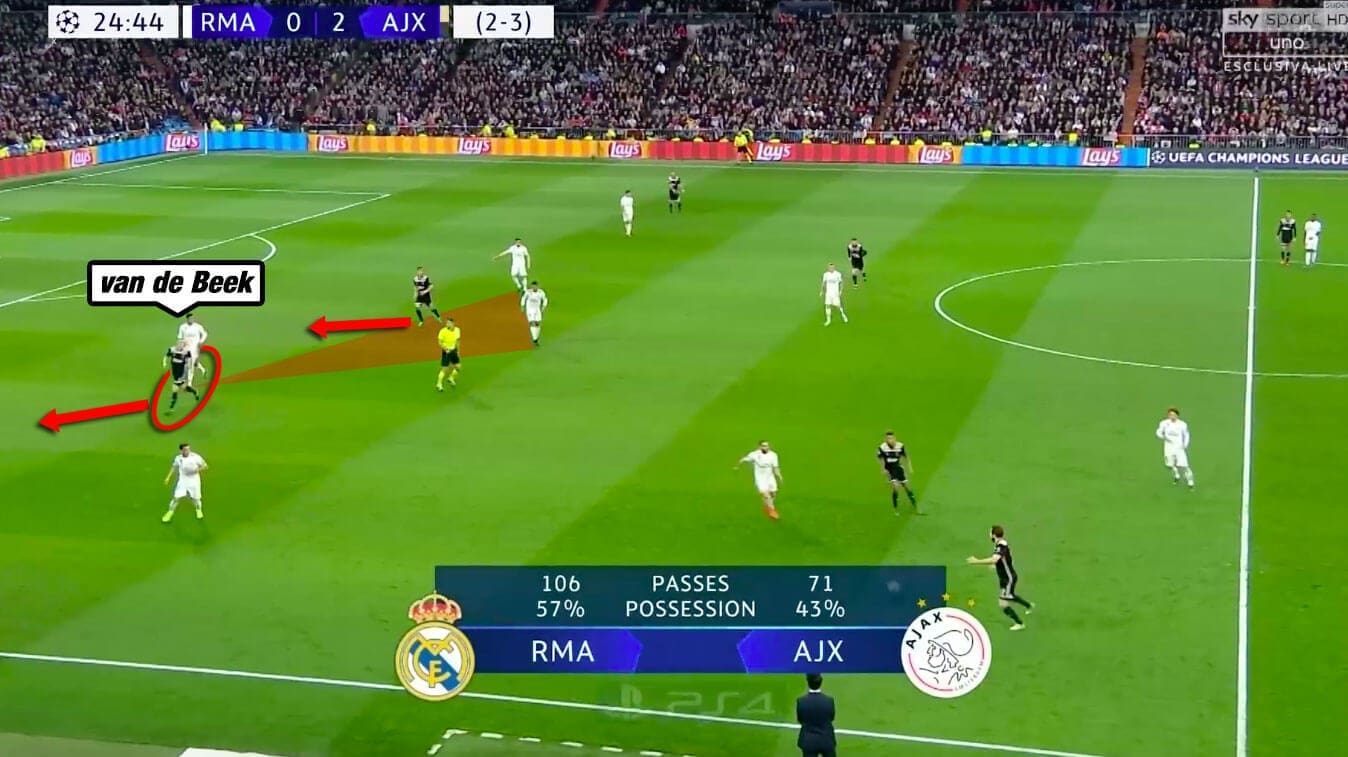
With clever deep runs, Tadic could use the created gaps to receive passes behind the last line. In general, French centre-back Raphaël Varane struggled with the movement of Van de Beek and Tadic.
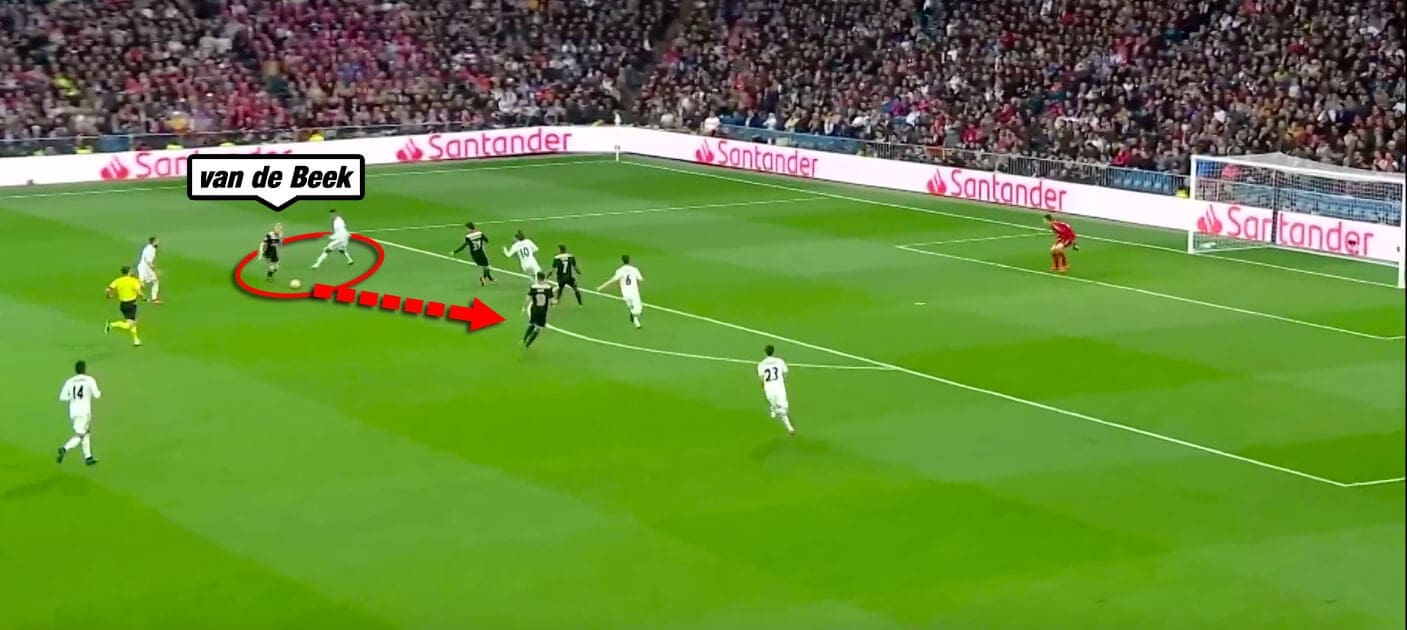
As Van de Beek pulled Varane out of position another time in the second half, Tadic had enough space to score the third goal for Ajax from a central position.
Controlling the transition moments
As another attacking concept, Ajax used counter-attacks to create chances. Ten Hag’s side quickly transitioned from defence to attack once having regained possession. Due to the pace of their attacking trio of Neres, Ziyech and Tadic, Ajax were often able to create numerical equality in counter-attacking moments. This was a result of Real Madrid’s missing cover in central defensive midfield.
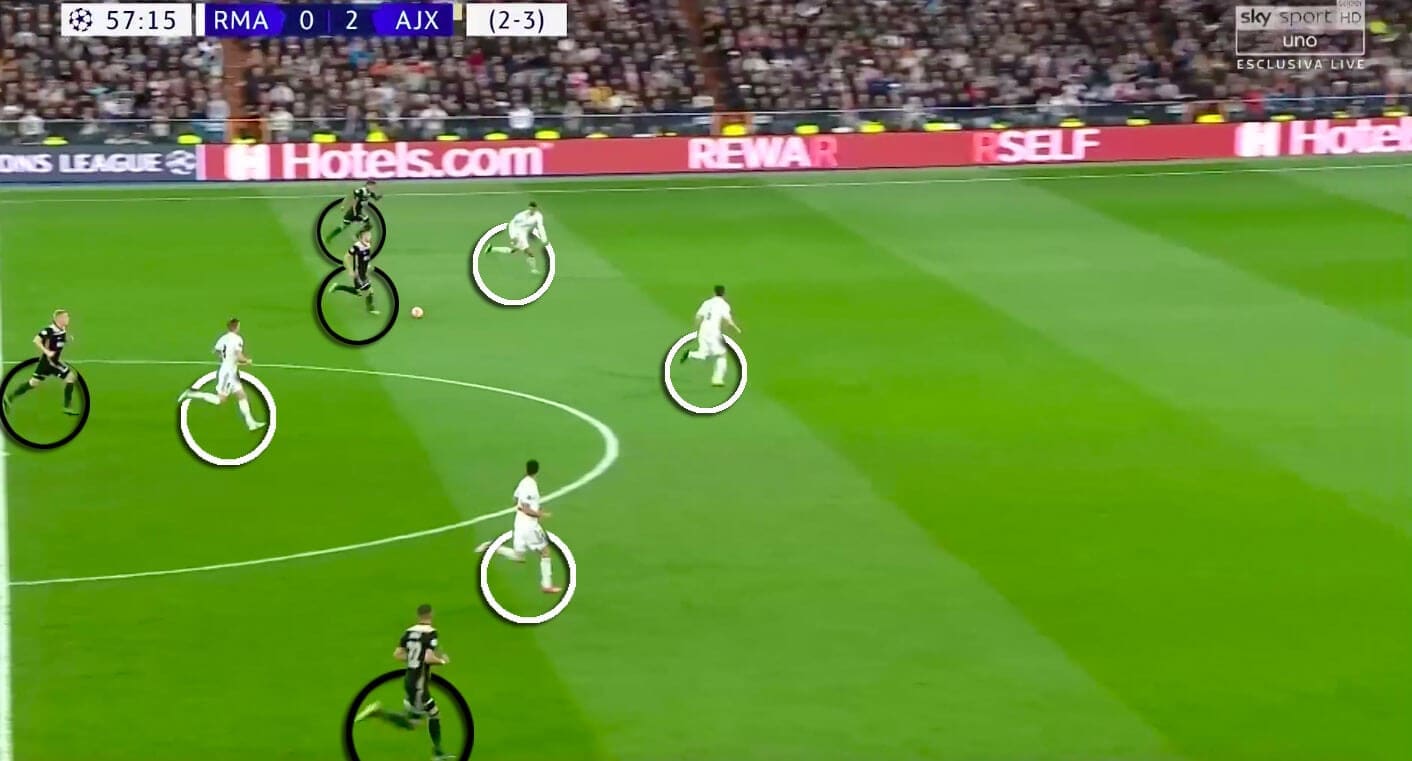
Due to the narrow positioning of both Ajax wingers, the Dutch side could often penalise Real for their huge gaps between centre-back and full-back.
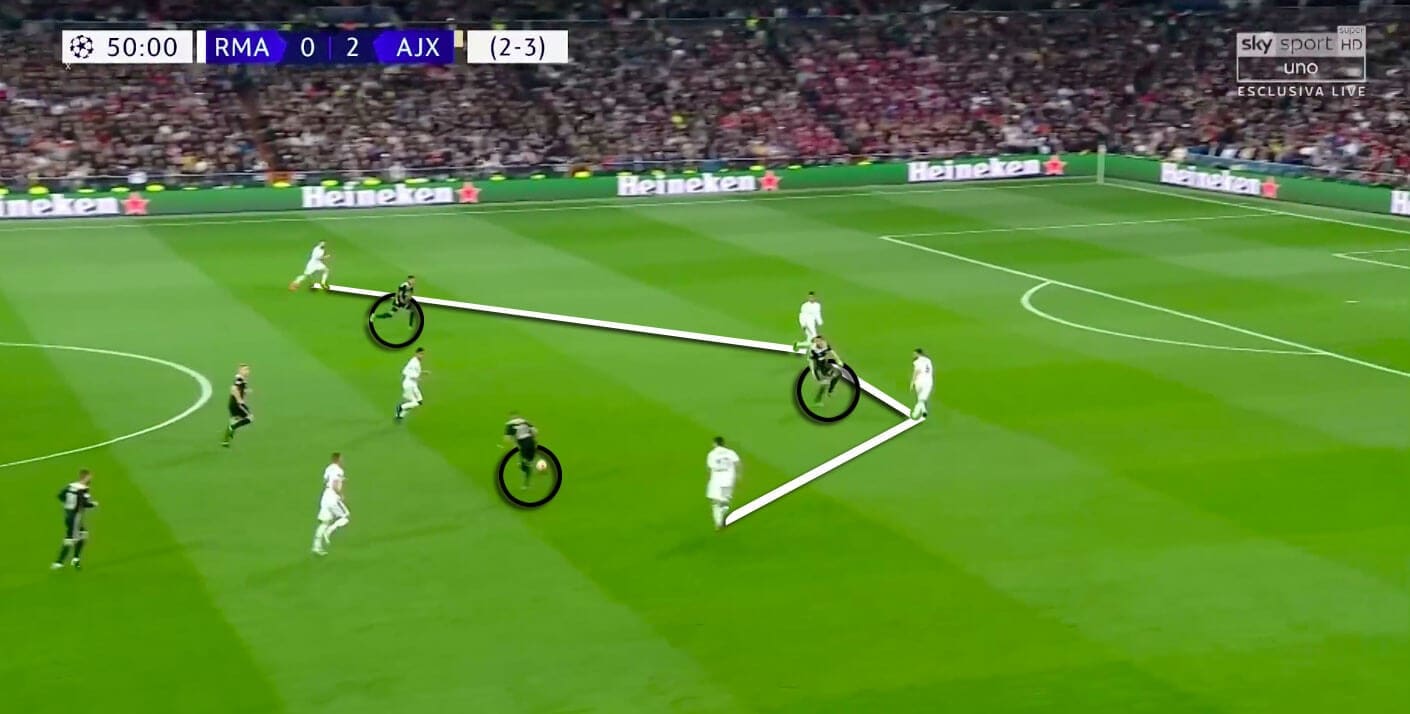
While Real Madrid lacked cover during their possession phase, Ajax mostly covered their attacks very well. With De Jong staying in a lower position, the midfield youngster was able to prevent Real from creating promising counter-attacks together with both central defenders. But as the wingers often tucked inside, they were also in central positions to avoid any counter-attacks.
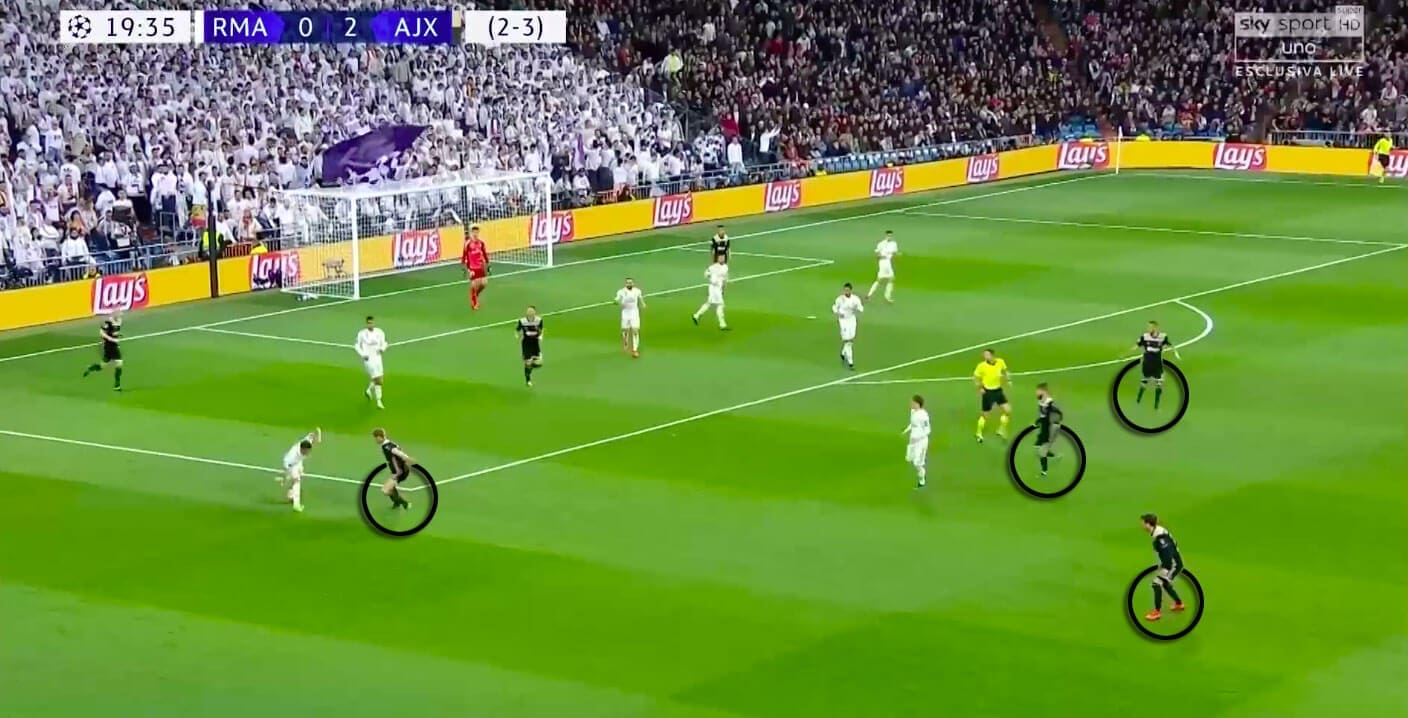
High press
Ajax aimed to disrupt the build-up play of Real Madrid in the earliest stage with their 4-2-3-1 formation. Therefore, striker Tadic pressed one of the central defenders. The wingers moved out to press the opposition full-backs.
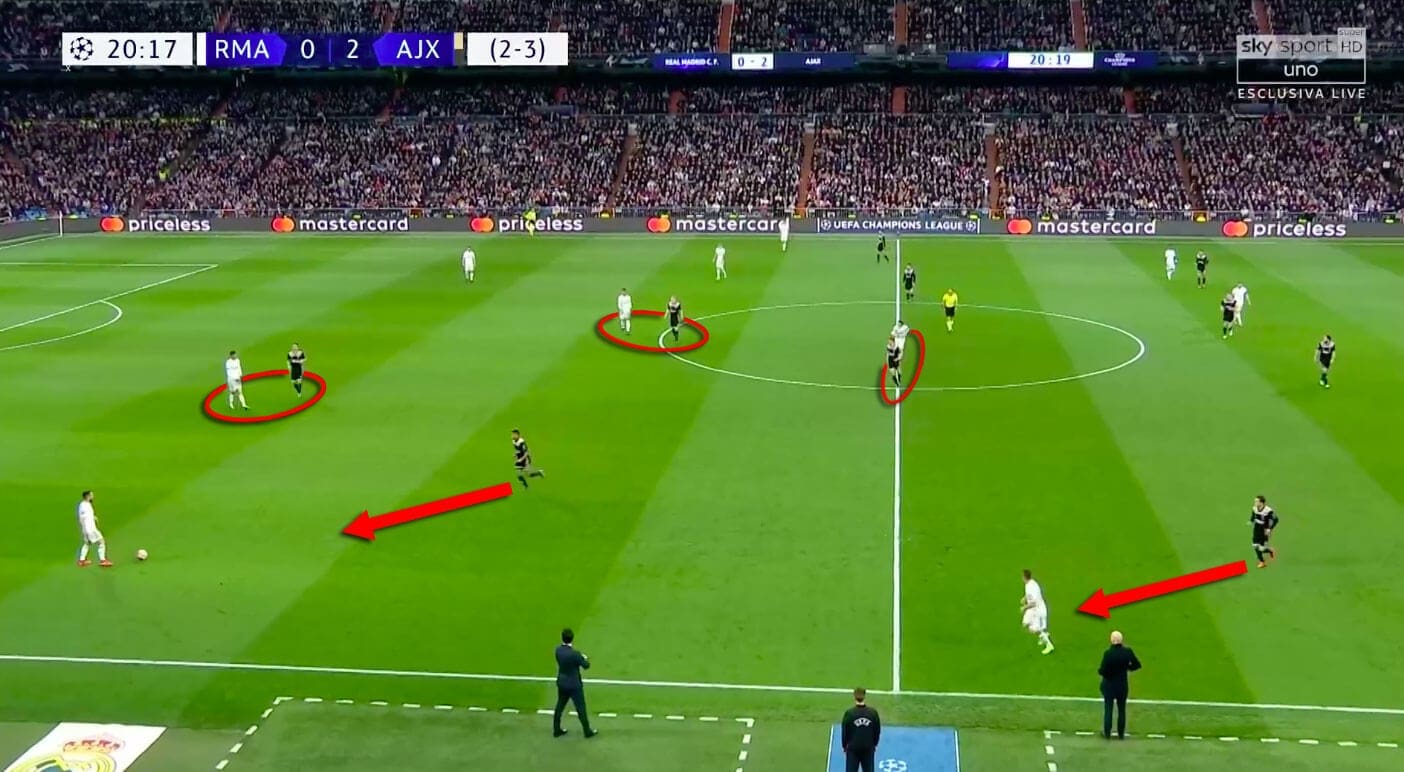
In order to avoid being outplayed on the wing, left-back Tagliafico moved up the pitch to press the opposition right-back. In the centre of the pitch, Ajax used simple man-orientations to shut down all passing options. Whereas Van de Beek marked Madrid pivot Casemiro, central defensive midfielders Frankie De Jong and Schöne marked Real’s advanced midfielders in Toni Kroos and Luka Modric.
Since the press of Ajax was successful on most occasions, Real Madrid only found the option of playing a long ball towards striker Benzema. However, central defender Daley Blind won most of his aerial duels (89%), while the French attacker only won 30% of his aerial duels. In addition to that, Ten Hag’s team were able to score the opening goal after pressing Real after a throw-in.
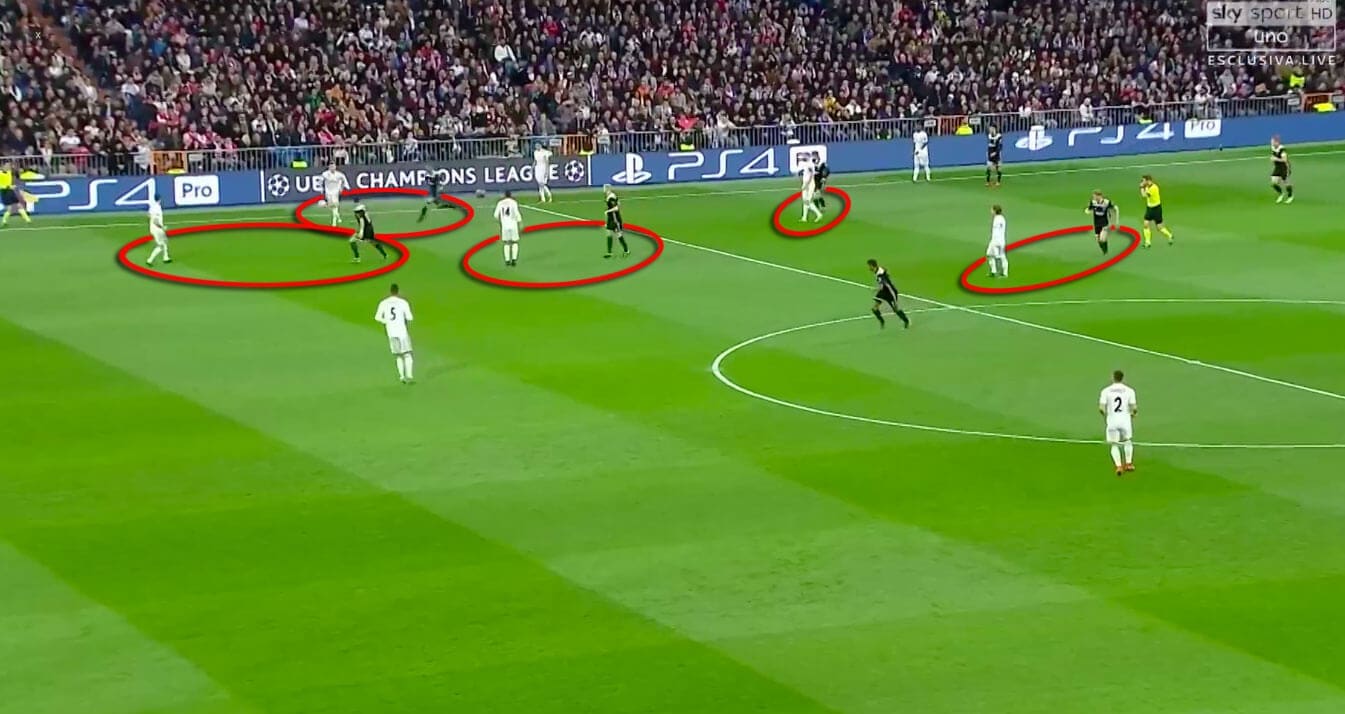
Real Madrid often struggled thanks to lacking passing options in central midfield. Van de Beek and his team-mates prevented Real’s central midfielders from receiving the ball which often led to Madrid losing the ball.
The possession phase of Ajax
In the build-up phase of Ajax, future Barcelona player De Jong attempted to pull the strings in central areas.
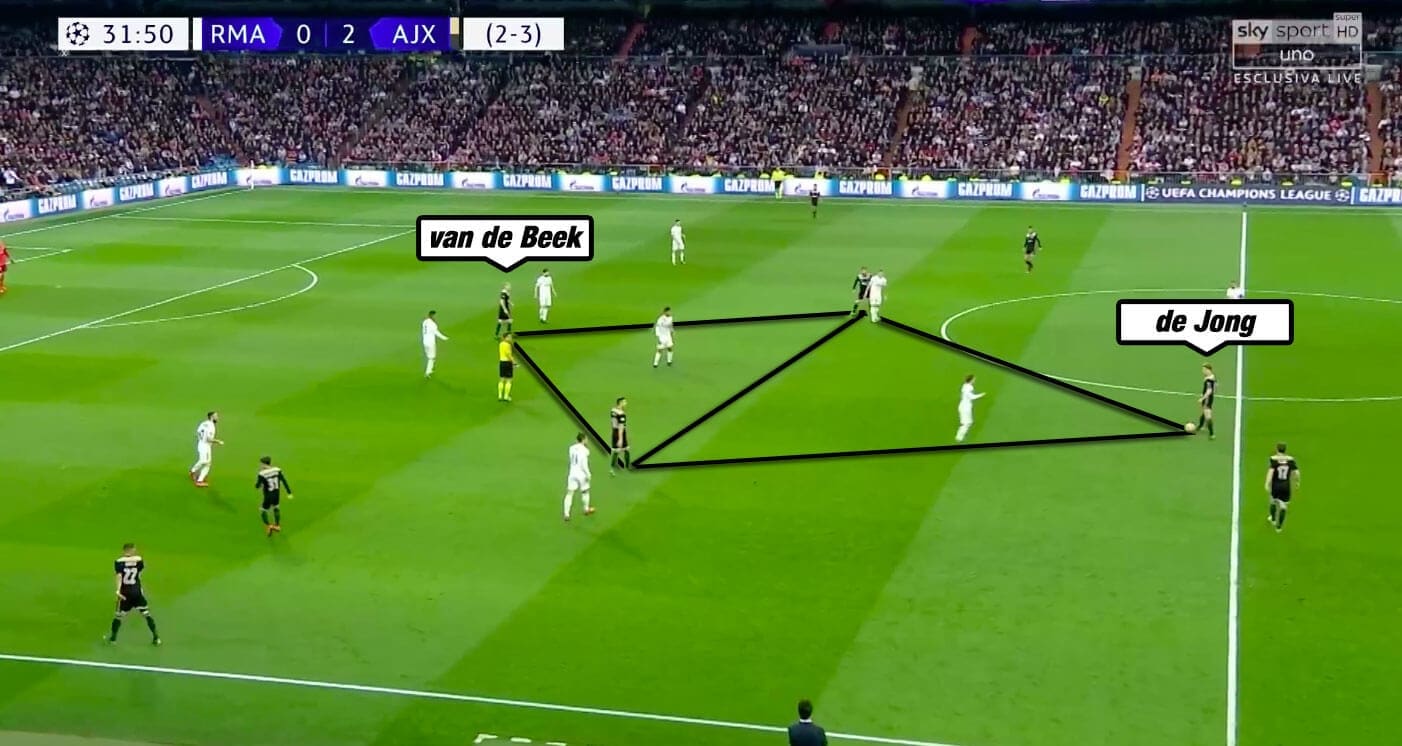
Danish midfielder Schöne dropped into a more deep-lying position at times to create a further passing option in the centre, only when De Jong was pressed or tightly marked by Real’s midfielders.
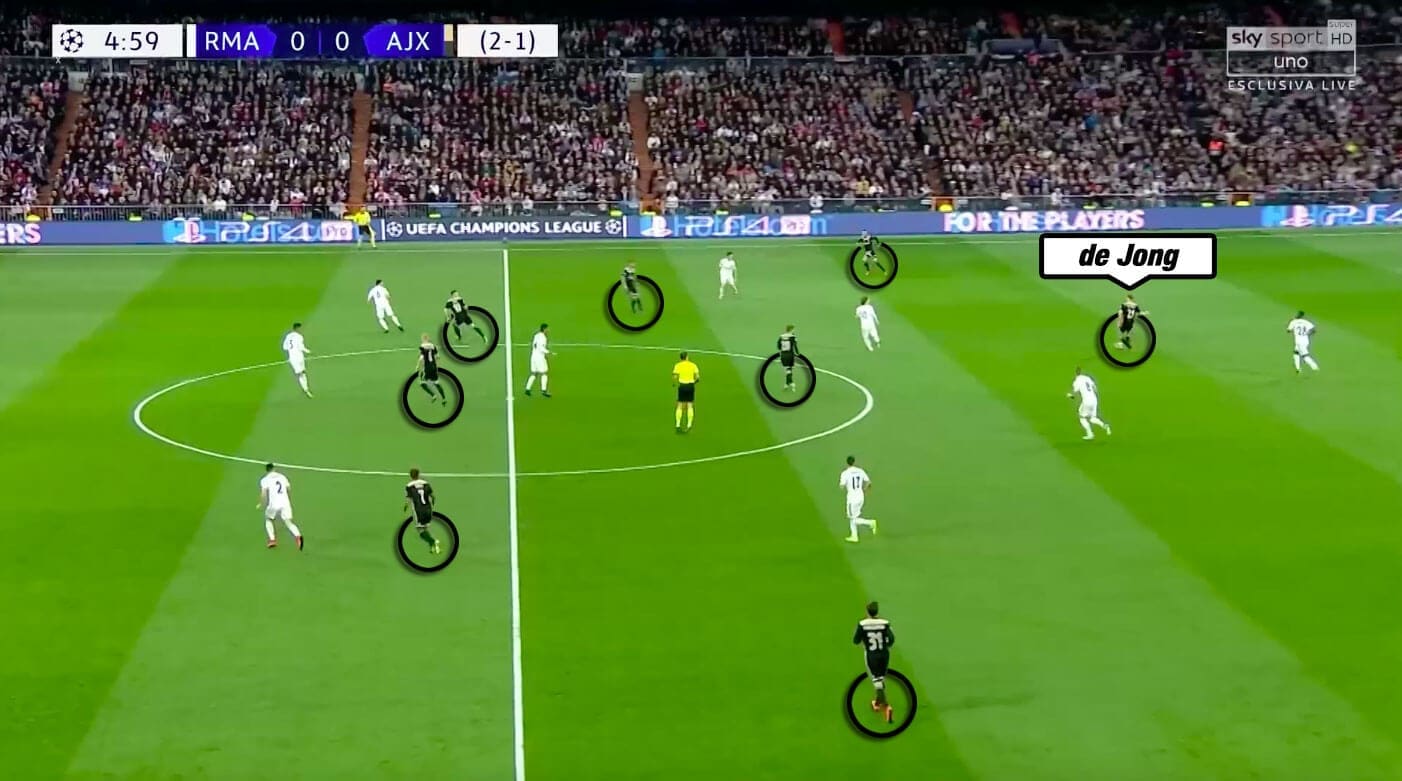
Playmaker Donny van de Beek moved high up the pitch in possession and acted like a second striker next to Tadic at times. Moreover, the narrow positioning of both wingers allowed Ajax full-backs Nicolás Tagliafico and Noussair Mazraoui to move up the pitch and provide width during the possession phase.
Defending in their own half
To prevent Real striker Karim Benzema from finishing within the penalty area, Ajax defenders tightly marked the French forward.
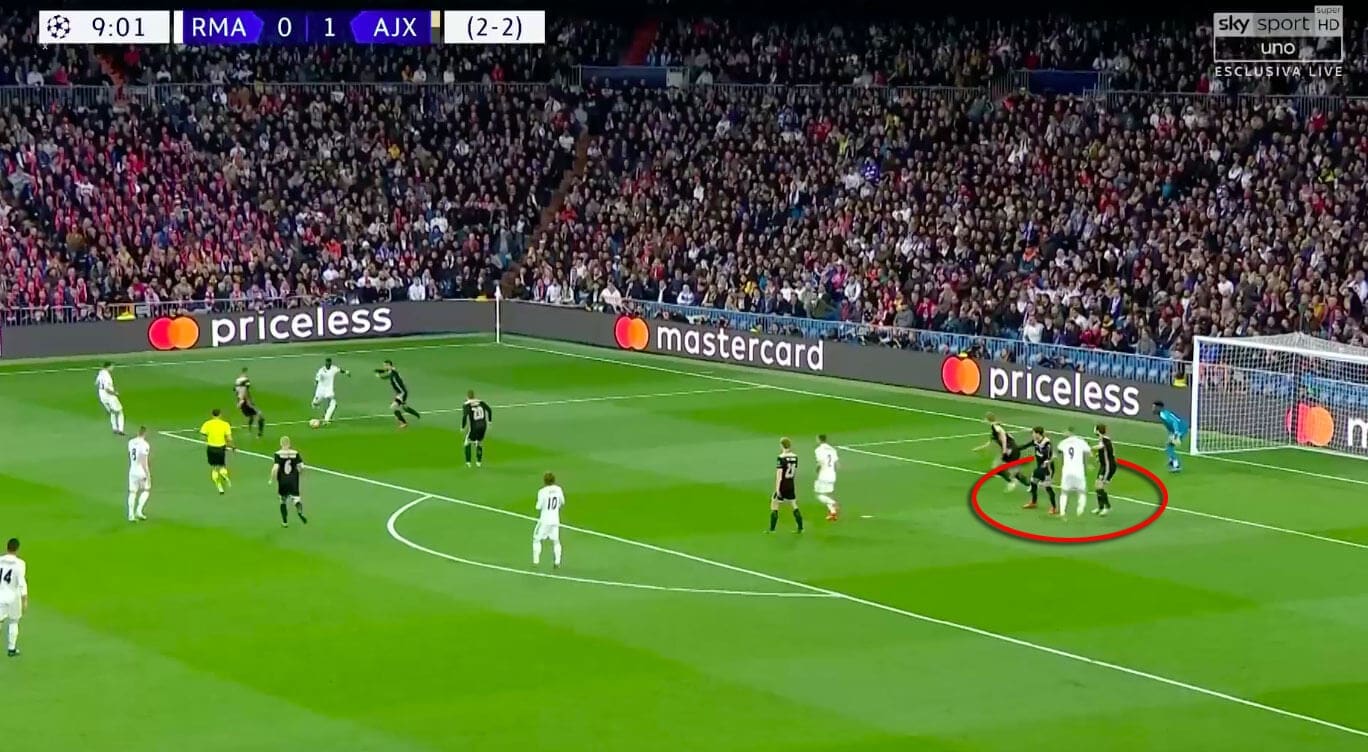
In the final stage of the game, Real Madrid had a lot of possession within the opposition half. However, Ajax used a very compact shape which prevented the Spanish team from creating chances.
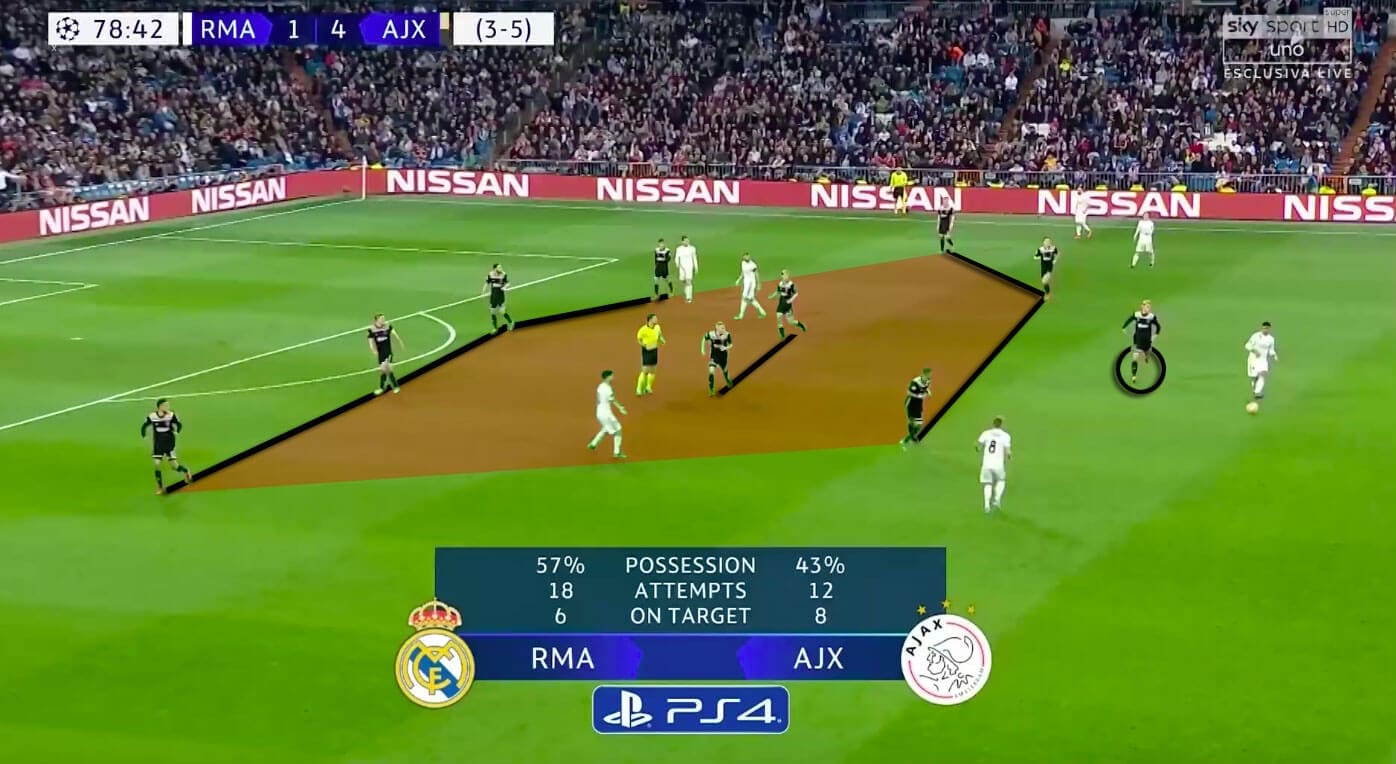
As the compact shape offered only a little space between the lines, Real Madrid were forced to play into wide areas. Due to Ajax’s strong defending within the penalty area, Madrid were unable to create promising opportunities though.
Conclusion
In the end, Ajax Amsterdam were capable of beating Madrid by three goals. However, the Dutch club also benefitted from Real’s bad conversion of chances. In addition to that, an outstanding free-kick goal by Schöne decided the match.
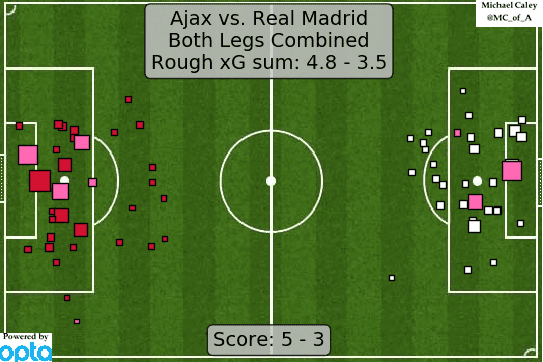
Nevertheless, the xG statistics of both legs combined showed that Ajax deserved to reach the Champions League quarter finals. Ten Hag’s men executed a well organised high press. Furthermore, Ajax were able to penetrate Real’s defence with Van de Beek’s clever off-the-ball movement to create space for Tadic and Ziyech.
It will be interesting to see how far Ajax can go in this Champions League campaign. No matter what, Ajax already proved all their doubters wrong with this phenomenal performance.
If you love tactical analysis, then you’ll love the digital magazines from totalfootballanalysis.com – a guaranteed 100+ pages of pure tactical analysis covering topics from the Premier League, Serie A, La Liga, Bundesliga and many, many more. Buy your copy of the February issue for just ₤4.99 here, or even better sign up for a ₤50 annual membership (12 monthly issues plus the annual review) right here.

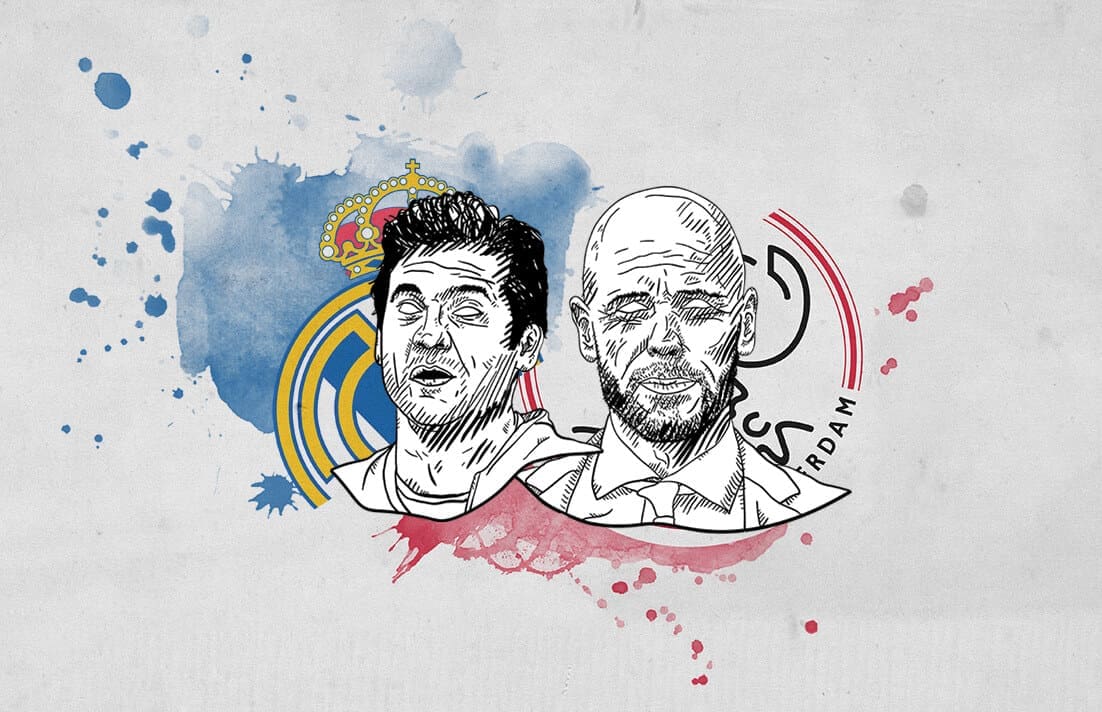



Comments